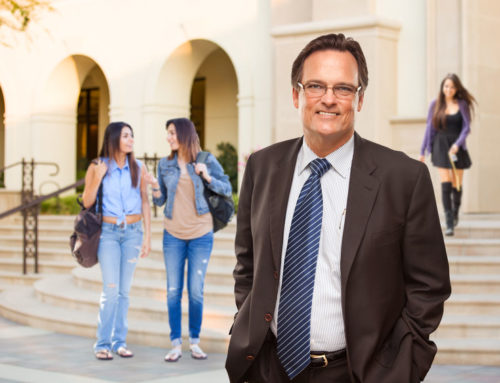It used to be that guidance counselors had one primary mission: prepare students for college and career pathways after graduation. Think of duties like writing recommendation letters, sending student transcripts to colleges, and helping students job hunt.
But in recent years, the role of guidance counselors has evolved to include far more. While today’s “school counselors” still serve as crucial advisors for students as they consider college and career moves, they’re now involved in a full range of duties, including helping to navigate social and academic challenges.
If you weren’t aware of this shift in responsibilities for school counselors, you’re not alone! Read on for some key ways these professional counselors can benefit your school.
Changes for school counselors
Today, school counselors may take on a host of other responsibilities. They can also help to identify learning disabilities and challenges for students. They work with parents to provide input on how students are faring socially, academically, and mentally. With the rash of school shootings in recent decades, school counselors may also serve as grief counselors in time of need.
As Mindy Willard, 2013 school counselor of the year for the American School Counselor Association (ASCA), puts it, “We are no longer ‘guidance counselors’ only focused on graduation and course selection for students. We are professional school counselors who focus on the academic success, college and career readiness, and social-emotional development of all students.”
Simply put, school counseling is a robust profession. These individuals must have master’s degrees and state-level certifications, and in their roles they benefit parents, teachers, administrators, and students.
School counselors and your private school
While private schools aren’t required to have a school counselor on staff, having one can provide some big benefits for your school. School counselors may help:
- Mitigate social problems, either with individual students or groups of students
- Help your students better prepare for academic challenges
- Connect with parents in your school on how to have a better relationship with their children
- Conduct one-on-one counseling with students for mental health reasons
According to the ASCA, effective school counseling programs lead to students experiencing:
- Improved behavior and academic outcomes
- Reduced racial disparities in Advanced Placement courses
- Reduced achievement gaps for minority populations with limited English language proficiency
- Better odds of attending college for students with autism spectrum disorder
- Higher graduation rates and increased likelihood of entering college
Wrapping up
The role of a school counselor has grown significantly over the past few decades. Understanding these shifts is helpful as you consider this role for your own private school. Hopefully, today’s blog post showed you some useful ways a school counselor can benefit your students, parents, and teachers.








Leave A Comment